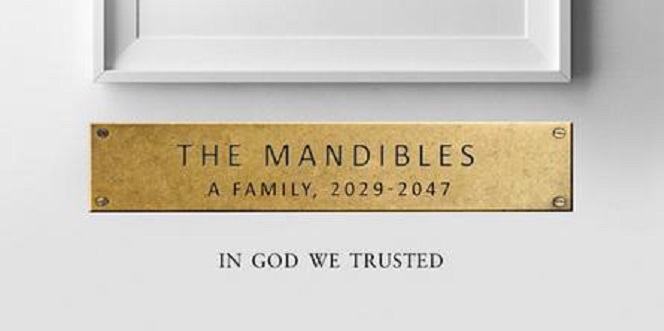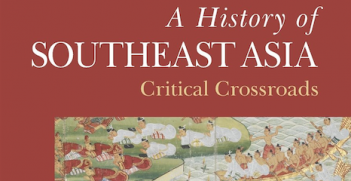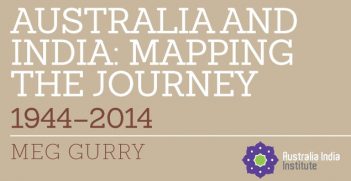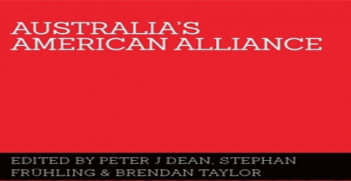Reading Room: The Mandibles

Fiction can provide a window into current anxieties and possible futures. This chronicle of the trials of a fictional US family achieves both. Ostensibly tracing the course of the Mandible family from 2029, Lionel Shriver’s latest book illuminates the anxieties impacting on US politics today. These include widespread worry that the US is going in the wrong direction, anger at the squeezing of the middle class and a sense of hopelessness about the future; all are factors in the current election.
The book opens with an economy in 2029 riven by technological disruption. Many members of the family have seen their occupations become obsolete, including a literary critic, an author, a bookstore owner and journalist. What were originally benignly called ‘bots’ are now called ‘robs’ as they displace workers.
Change has brought intergenerational conflict. The great-grandparents live off the income from the family’s investments in a luxury retirement home. The generation following live in modest comfort, impatiently waiting for the inheritance they might receive in their 60s. For the next generation, life is cutthroat: one sister makes it into the upper middle class but one ends up lower; this means showering once a week to save water.
And things are only going to get worse. When banks in Britain and Switzerland go bust, the US dollar crashes and the US can’t meet its debt, by then on a path to 290 per cent of its GDP.
A new international reserve currency called the bancor is established by Russia’s President (still Putin) with the support of China and others. In response, US President Alvarado makes it illegal for US citizens to hold bancors or to transfer capital outside the county; he confiscates all gold in private hands; and, most dramatically, calls a ‘reset’ on US debt with all Treasury bills declared void. We then see the results of this ‘Great Renunciation’: the US is no longer able to trade with the world, suffers massive inflation and finally experiences collapse of law and order amid widespread famine.
The Mandible family experience this as a crescendo of disaster. The legendary Mandible inheritance is wiped out in a second; the great-grandparents, suddenly penniless, move in with their long-suffering son. The upper middle class family lose everything: with universities’ endowments worthless, tenured staff are sacked and the family ends up in the basement. An expatriate aunt returns home from Paris on a tide of anti-Americanism: the final straw was a woman dumping a pot of crème fraîche in her hair.
We watch the family deal with runaway inflation through payday buying, hoarding, economising and then attempting to grow food; eventually we see the youngest generation’s gradual descent into petty thievery and prostitution. In the end, after the family’s last remaining property is taken by force, it finds refuge thanks to the survivalist brother who had bought a remote farm to prepare for the coming Armageddon.
What underpins the narrative is the great convergence as other economies catch up with the US. Some changes are symbolic (China now has the ‘1’ country code) while others are institutional (a ‘New IMF’ where the US does not dominate). There is no doubt where the power has gone: confiscated gold is paid to China to forgive US debt and Chinese and Vietnamese investors snap up US properties—eventually even the Grand Canyon—as the economy goes into freefall. Closer to home, Mexico becomes the continent’s powerhouse economy, draining the US of its ‘Lat’ population; when non-Lats try to cross the border, Mexico responds to these ‘illegals’ by building a coast-to-coast electrified fence.
While the economic transformation is at the centre of the novel, the changes in international relations come in asides. We learn that:
- Malnutrition in Africa has made a comeback
- There is now a political unit called the Caliphate
- Korea has reunified (and continues to make soap operas)
- Climate change is kicking in with crop failures and energy price spikes
- The world population is nearing nine billion
- The Euro has disappeared with individual European currencies reinstated
- There is a Palestinian state
- ‘New Zealand’ has become a code word for fiasco up there with Vietnam and Iraq; what happened we never learn.
While the economic situation stabilises by 2047, the US is permanently weakened: the jobs that are available are low-skill roles supervising ‘robs’ in factories set up by investors from China, Indonesia, Myanmar and Cambodia to take advantage of cheap US labour and land. The only booming industry is medical with free care for those over 68 consuming 80 per cent of the federal budget. With two retirees for each person of working age, workers are condemned to multiple drudge jobs and have 77 per cent tax taken through a chip in the back of each citizen’s neck. Antibiotic resistant bacteria make life more fragile.
This weakened US does not respond when China absorbs Taiwan nor even when it takes over a depopulated Japan. When Indonesia invades Australia in 2057, the President has the grace to send a special communiqué to say he is sorry.
The loss of America’s superpower status is presented as a relief. According to one character:
“…he did not feel implicated by Taiwan or Japan. His country did not help because it could not help. It did not have the money. That was relaxing. This must have been what it had felt to live in most countries, when the United States was sending bombers and ships and troops and airlifts whenever something went wrong. If there was genocide in Madagascar, they didn’t beat themselves up for not doing anything about it in Argentina.”
The US does not extend itself even when Russia annexes Alaska; according to the Speaker of the House, it “was always pretty far away anyway.”
With its prophecy of malaise and decline—and reaction of mixed defiance and fatalism—The Mandibles is an excellent primer on the fears animating the US today.
Lionel Shriver (2016), The Mandibles: A Family, 2029-2047. The Borough Press, London. ISBN 9780007560752
Melissa Conley Tyler is National Executive Director of the Australian Institute of International Affairs. She is a graduate of the Fletcher School of Law and Diplomacy at Tufts University.





